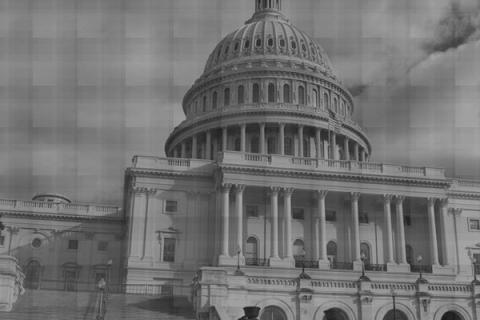Sugar added to processed foods should be regulated the same way as alcohol and tobacco says a team of UCSF scientists. On Wednesday, the scientific journal Nature published a controversial commentary by a group of researchers who believe the proper role of government is to heavily tax and limit the availability of sugary foods and drinks to stem the tide of a public health crisis.
The scientists, led by pediatric endocrinologist Dr. Robert Lustig, say that increased global consumption of sugar has led to an epidemic of chronic illnesses. While health experts have mainly focused their attention on the role obesity plays in rising rates of chronic diseases such as heart disease and diabetes, Lustig and his team assert that sugar plays a bigger causative role in metabolic-related ailments than does weight.
Public health experts and the commentary's co-authors Laura Schmidt and Claire Brindis agree. They note in their paper that studies show 20 percent of obese people have normal metabolic function and their weight does not contribute to any illnesses, while 40 percent of people considered to be of normal weight have metabolic problems that can lead to chronic disease. Convincing evidence, they argue, that sugar is to blame.
Sugar consumption has tripled over the past 50 years worldwide. This has contributed to the obesity epidemic to the extent that there are 30 percent more obese people on the planet than there are malnourished people, they say.
Lustig, who has written and spoken extensively on the potential toxicity of sugar, said in an interview that:
“the only method for dealing with this is a public health intervention,"adding, "Everyone talks about personal responsibility, and that won't work here, as it won't for any addictive substance. These are things that have to be done at a governmental level, and government has to get off its ass."
A CBS Health Pop article summarizes Lustig's arguments for placing sweeteners in the same legal category as booze and cigarettes:
“Sugar meets the same criteria for regulation as alcohol, the authors wrote, because it's unavoidable, there's potential for abuse, it's toxic, and it negatively impacts society. They write that sugar is added to so many processed foods that it's everywhere, and people eat up to 500 calories per day in added sugar alone. Sugar acts on the same areas of the brain as alcohol and tobacco to encourage subsequent intake, they wrote, and it's toxic because research shows that sugar increases disease risk from factors other than added calories, such as when it disrupts metabolism.”
Marion Nestle, the Paulette Goddard professor of nutrition, food studies, and public health at New York University reviewed the Nature article for WebMD and concluded that Lustig has the science to back up his calls for sugar regulation. "The commentary should be a wake-up call to policymakers," she says.
Nestle tempers her statement with a reminder that sugars in and of themselves aren't killers when ingested in wholefood form.
"That Americans would be healthier consuming less sugars is obvious and easily demonstrated," Nestle told WebMD. "Sugars themselves are not harmful if eaten with other nutrients, as in fruits, and in diets that balance calories. But it's hard to balance calories when eating a lot of sugars."
Nestle said that some people eat enough added sugar to equal half their suggested daily calorie limit for maintaining weight. According to Lustig's report, Americans eat and drink roughly 22 teaspoons of sugar a day – about three times the recommended daily value for the average adult. In order to keep sugars from sneaking into the American diet through snack foods, breads and drinks, a massive shift in how foods and beverages are made in the United States is necessary, the authors say.
So what is to be done? On a personal level, Nestle suggests trying to cut back on or cut out sugary drinks as a healthy first step. But if this is a problem beyond the ethical capacities of mere citizens and corporations, the only solution, says Lustig, is to bring on the government regulations using the alcohol and tobacco industries as a model. The plan is to steer people toward healthier eating habits through targeted public policy, while at the same time using regulatory force to make this sweet drug less pervasive.
Lustig offers some policy recommendations:
- Tax sugary foods...a lot. Lustig acknowledges that states like California are considering soda taxes, but in order to be effective, he says the tax must be weighty. He suggests a $1 tax on a $1 can of soda.
- By tightening licensing requirements on vending machines, localities could limit the availability of sugary foods.
- Impose age restrictions for the purchase of sugary drinks and foods.
- The FDA could remove fructose from its GRAS (Generally Recognized as Safe) list. As it stands now, food manufacturers can add sugar to any product without premarket regulatory review.
Another, more consumer-choice oriented idea, is one backed by Nestle. She says food makers should be required to list the amount of added sugars on Nutrition Fact labels. Currently, labels only list total sugars and do no distinguish between added and naturally occurring varieties. Schmidt noted that these policies could change eating habits only if healthier choices are made widely available at the same time.
The American Beverage Association said in a prepared statement that comparing sugar to alcohol and tobacco is “simply without scientific merit.” It added: "There is no evidence that focusing solely on reducing sugar intake would have any meaningful public health impact." Other food and beverage industry interests have released statements saying that sugar cannot be blamed for high chronic disease rates anywhere in the world.

